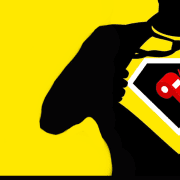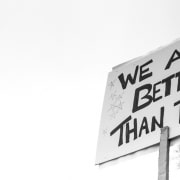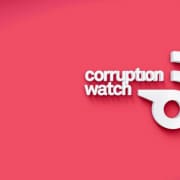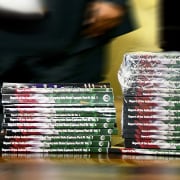|
Getting your Trinity Audio player ready...
|
On 19 March 2020, the Eskom board issued a media statement titled Eskom board statement on allegations against the COO, citing the Eskom employee who raised the allegations and has submitted an affidavit to the Zondo commission of inquiry into state capture. The entire Eskom board statement is attached at the end of this document.
From Corruption Watch’s (CW) analysis of the information at hand, we have identified certain areas of the Eskom board statement issued that are factually inaccurate. It is concerning that Eskom continues to issue misrepresentations on this matter when their explicit statements confirm their commitment to rooting out corruption.
Eskom states, in paragraph 2 of the statement: “In the correspondences both organisations articulate allegations of corruption and victimization against the Chief Operating Officer. Both organisations cite the same source, an Eskom employee who has since deposed to an affidavit to the Commission of Inquiry into State Capture, as having raised the allegations”.
The words, “who has since deposed to an affidavit,” implies that the whistle-blower made allegations of corruption against Chief Operating Officer (COO) Jan Oberholzer to the Zondo commission after he approached Corruption Watch and the South African Federation of Trade Unions. This is not true. The whistle-blower deposed an affidavit in June 2019 and continues to work with the Zondo commission. The whistle-blower also lodged a formal grievance through the Eskom process in September 2019 after he was aggrieved by a telephone discussion regarding work related matters with Mr Oberholzer.
The Eskom statement goes on to say that: “Many of the allegations raised in the letters have not previously been made available to the executive management and the board of Eskom”.
However, the reality is that the whistle-blower lodged a grievance against the COO in September 2019. This was allocated to the then chairperson of the board and acting group chief executive, which is the next level of authority. In this regard, many of the allegations in the context of the grievance have been made available to Eskom since then.
In paragraph 5 of its statement, we read that: “Eskom has previously dealt with matters concerning the employee in question, and after an investigation led by an outside senior counsel, the investigation was closed following a thorough examination of the allegations, to which no substance was found”.
This is completely untrue. The whistle-blower lodged a grievance against Mr Oberholzer in terms of the internal Eskom grievance procedure in September 2019. External senior counsel (Adv. Eric Mkhawane) was appointed to preside over the grievance. There were no other matters raised by the whistle-blower that were dealt with and investigated of which the outcome was that “no substance was found.’’
In fact, the grievance was resolved and formally closed with recommendations that Eskom is still to implement. The reason why the whistle-blower is at the CCMA is that Mr Oberholzer instituted charges against him some 10 weeks after the grievance was resolved. The charges in CW’s view are linked to the issues that were dealt with and closed in the grievance. It is concerning that Mr Oberholzer then chose to charge the whistle-blower on issues ‘’resolved’’ from the grievance. This is irregular and borders on victimisation.
Paragraph 5 is factually incorrect in that it says that Eskom has investigated – through external senior counsel – and found allegations made by the whistle-blower against Mr Oberholzer to be without substance. There was never a previous investigation. The grievance from the whistle-blower was dealt with through Eskom’s grievance process and closed. The grievance policy and process serve to bring resolve to relationships and create harmony with employees whom are impacted by discontent. This is not an investigation and does not result in judgements of founded or unfounded allegations.
In conclusion, it is important to bear in mind that the whistle-blower is challenging the decision of the COO to level charges against him on matters that were dealt with as part of a grievance and closed, and to unilaterally move him from his appointed position in the organisation, in what can only appear to be an effort to silence him.
CW welcomes the statement that “Eskom’s executive management and the Board stand firmly against corruption, victimization and abuse of power.” In addition, the decision by the Eskom Board to engage the services of an independent senior counsel to investigate the allegations against the COO, Jan Oberholzer, is welcomed. However, their representations in the press statement below stand in stark contradiction to the executive management and board’s stated commitment to fight corruption, victimisation and abuse of power.
Ends
The Eskom board statement reads as follows:
1. “Thursday, 19 March 2020: The Eskom Board acknowledges receipt of correspondences from Corruption Watch, an anti-corruption civil society organisation, dated 11 March 2020, and from the South African Federation of Trade Unions (SAFTU), dated 12 and 18 March 2020.
2. In the correspondences both organisations articulate allegations of corruption and victimization against the Chief Operating Officer. Both organisations cite the same source, an Eskom employee who has since deposed to an affidavit to the Commission of Inquiry into State Capture, as having raised the allegations. In the correspondence, the organisations implore the Eskom Board to intervene and act to protect the whistle-blower.
3. Many of the allegations raised in the letters have not previously been made available to the executive management and the board of Eskom. These letters also follow the publication of recent media articles that continue to refer to some of the allegations.
4. From the onset, it must be stated categorically that Eskom’s executive management and the Board stand firmly against corruption, victimization and abuse of power. Whistle-blowers are a key instrument in the fight against all these excesses, and Eskom endeavors to accord them due protection and encouragement at all material times. We also stand resolutely for transparency, good corporate governance, good ethics and being a fair employer.
5. Eskom has previously dealt with matters concerning the employee in question, and after an investigation led by an outside senior counsel, the investigation was closed following a thorough examination of the allegations, to which no substance was found.
6. However, in light of the new allegations as articulated in the Corruption Watch and SAFTU letters, including the alleged abuse of power, the Board of Eskom has taken urgent steps to address these allegations in a transparent process following Eskom’s governance principles and disciplinary codes.
7. These processes are invoked in a fair and consistent manner whenever there is prima facie evidence that misconduct has been committed, and this is done without fear, favour or prejudice of the position of the employee involved.
8. In the best interest of Eskom and both the complainant and the COO, the Board has engaged the services of an independent senior counsel to investigate the allegations against the COO, and upon conclusion of such an investigation, to provide recommendations to the Board.
9. It is hoped that the conclusion of such an investigation, together with any subsequent actions that may be required, will bring about a fair and lasting resolution to the matter for all parties concerned. “
ENDS








